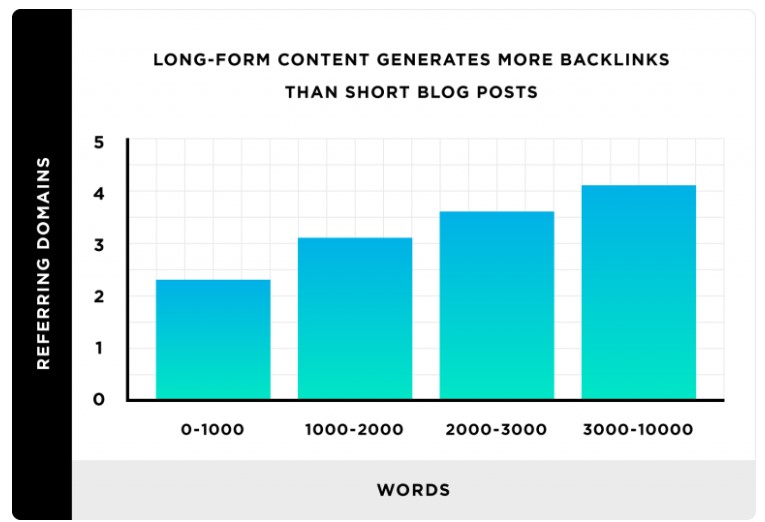Written By:
Tim Stobierski
Content marketing is an excellent way for you to attract people to your website, where you can educate them throughout the course of their buyer’s journey and begin developing a strong, trusting relationship that will help you eventually close the deal.
Blog posts, website pages, helpful tools—all of these pieces should play an important role in your content marketing strategy. While each is a critical component, blogging is where most businesses see the greatest potential for growth: Through blogging, it’s possible for your website to rank for countless valuable keywords (in addition to the keywords that your main pages are optimized for) that your potential customers are searching for in Google and other search engines.
When writing a blog post, there are many considerations that you need to keep in mind. The keywords that you want to rank for. How your brand voice translates into copy. How your calls-to-action (CTAs) trigger conversions. Etc.
One often overlooked consideration? The length of your content.
In the past, depending on your industry, simply creating content of any length may have been enough to rank for the keywords that you were targeting. Over time as more and more websites began creating content, this changed. Now, in order for most content to have any chance at all of ranking for many keywords, it will need to be at least 600 words in length. Some content, especially when targeting highly competitive keywords, may need to be substantially longer than that—to the tune of 1,200 to 1,800 words or more, in some cases.
Enter: The Long-form Blog Post.
Below, we explain what we mean when we say “long-form blog post,” highlight some of the key benefits that come from publishing long-form content to your website, and provide a set of steps that you can take to start writing your first long-form pieces.
Organize your Blog by Downloading our Free Editorial Calendar Template!

What is a long-form blog post?
A long-form blog post is any blog post which is substantially longer than the average blog post found on the web. Most authorities define long-form blog posts as being content that ranges from 1,200 to 2,000 words in length, though definitions can vary depending on who you ask.
At Pepperland, we roughly group content by word count into the following categories:
- Quick Blog Post: 200-600 words
- Short-Form Blog Post: 600-800 words
- Mid-Length Blog Post: 800-1,000 words
- Long-Form Blog Post: 1,000-1,500 words
While word count is an easy guide to follow in deciding the rough length of your content, we find that it can actually be a bit of a misnomer. When we say “long-form blog post” what we really mean is a blog post which thoroughly addresses a topic from start to finish. It’s not just more words for the sake of length. While this will typically fall in the range of 1,000 to 1,500 words, it could also exceed this range, depending on the topic we are writing about.
Why Write a Long-Form Blog Post?
If you’ve never written a blog post longer than 600 words, you might be sitting there wondering to yourself: Why would I ever write something as long as 1,500 words? To answer that question, here are some of the benefits that come with writing long-form content.
1. Long-form content is more competitive.
A big part of the push toward long-form blog content is the fact that there’s just so much other content already out there on the web. Writing a longer blog post targeting the same keyword as other websites with shorter content gives you the opportunity to add more value to the reader—a key differentiator that can help you stand out.
Not seeing a lot of competition for your keyword? While you might be able to rank with a shorter piece of content, you might still find that longer is the way to go, because it will be harder for a newcomer to show up and dethrone your content.

2. Long-form content lets you be more thorough.
When we talk about the length of content, more often than not what we are really talking about is the thoroughness of it. Simply put, longer content tends to be much more thorough than shorter content. This helps you answer all of the questions that your reader might have about a given topic, which in turn means that you will provide more value, increasing your likelihood of ranking for valuable keywords.
While long-form blog posts can be used to address any topic, they can be particularly beneficial when you’re dealing with a technical subject, or when you’re trying to walk the reader through a process.
3. Long-form content ranks for more keywords.
When you write a longer piece of content, you will naturally find yourself using a number of different variations of the targeted keyword. This will help you rank for those variations in addition to the primary keyword that you’re targeting. Additionally, because longer content tends to be more thorough (see above), you’re likely to rank for related queries, so long as you address them in your content—even if they’re not the primary focus of your blog post.
4. Long-form content helps you build trust.
By writing a long-form blog post, addressing a topic thoroughly, and answering all of the related questions that your reader might have, you are establishing yourself and your business as an expert that the reader can trust. This trust will help you establish a relationship with your potential customers, which you can then leverage to help you close a sale once your buyer is ready.
Tips for Determining the Right Length for Your Blog Post
Before you begin writing a piece of content, run through the list of advice below to help you determine how long your content should really be.
1. Evaluate the SERP.
If you are writing content designed to rank in organic search, then your first step should be to choose a keyword. This should be a keyword that is closely related to the topic you want to write about and one that your prospective customer may search for. Armed with this keyword, you should then evaluate the search engine results page (SERP) to determine how long your blog post should be.
To do this, simply conduct a search for the keyword as though you are a potential customer. That first page of search results is where you want to be, so the content currently ranking in the top ten is your competition. Open each of those ranking articles, and read through the content that exists.
Ask yourself: Roughly how long is the content, on average? How thorough is the content? What other assets (like video or images) does the content include, other than text?
This information will be critical in helping you create an outline that will perform well in organic search. Use your insights from this analysis to determine what your content should look like, including how long it should be.
For example, imagine that all 10 pieces of content ranking for the keyword that you want to target are text-only and about 600 words in length. They address the topic partially, but all have gaps that prevent them from being comprehensive. You might decide that a long-form blog post is the way to go, because it will allow you to more comprehensively address the topic, answering related questions that the searcher is likely to have. Because this offers the searcher more value, you increase the likelihood that your content will perform well in search.
2. Think about other ways to differentiate your content.
While writing a longer, more comprehensive blog post is certainly one way of differentiating your content and adding value for the reader, it isn’t the only way that you can get your content to the top of search. Including video, images, statistics, expert quotes, or competing arguments can all help your content stand out from the competition and dethrone incumbents.
Think back to the example above. All 10 pieces of content ranking for the targeted keyword are text-only and about 600 words in length. From this information, you might gather that to even have a chance of outranking what exists, your content will at least need to be 800 words in length, probably more.
But what if you were to add images to your content that helps the reader better understand the topic? Or a video? If none of the content that currently exists is utilizing these components, it’s possible that you can get by with a shorter piece of content—say, 600 words—so long as you’re making up for that value with these other components.
Similarly, you might notice that every single piece of content is making the same argument. If your argument is unique, that might also be enough of a differentiator to help you rank for the term, even without writing a longer piece of content.
3. Don’t let perfection stand in the way.
Okay. You know the topic you want to write about. You’ve chosen a keyword that resonates with your audience and which has decent traffic behind it. You conduct your analysis and come to the realization that your blog post will need to be 1,800 words long in order to compete with what’s already out there. But you only have a few hours to dedicate to the task before you have to shift gears to something else. Guess you won’t be writing that blog post after all, right?
Wrong.
You should never let perfection stand in the way of your content marketing efforts. If you only have time to write 600 words today, then write the best 600 words that you can about your subject.
So long as the content makes sense and feels complete (i.e., it has an introduction, a body, and a conclusion), go ahead and publish your blog post. You can—and should—return to it in the future to make it stronger and bring it up to where it ultimately needs to be. Next week, you can add in another 600 words answering related questions in your content, or elaborating upon the ideas from the first part. Maybe the week after that you can generate some graphics and a short video.
What’s better? Getting content live on your site, where it can work for you, and then iterating upon it until it’s at the level of quality that you want it to be at? Or becoming so paralyzed by the task at hand that you never even start?
When in doubt, go with a length that feels right.
It’s worth noting that not all content needs to be 2,000+ words in length in order to rank well in search and do the job that you need it to do. Depending on the keyword that you are targeting with your content, you could just as easily compete with a piece of content which is 800 words long.
Many agencies, like ours, use tools to identify a recommended minimum word count for content. But even with tools like this, it’s important to use your own critical thinking and interpretive skills to determine how long your content should be. Ultimately, the right length will be the one that lets your content:
- Thoroughly address the topic you are writing about
- Adequately answer the searcher’s intent
- Compete with other content ranking for the keywords that you are targeting
And remember: Quality is definitely more important than quantity. A well-written, well-optimized, compelling blog post will perform better than a blog post which drags on for 2,000 words just to hit an arbitrary word count.
Just One Factor, Out of Many
The length of your content is certainly an important factor in whether or not it will rank for the keyword (or keywords) that you’re trying to target. But it’s important to remember that it’s really just one factor out of many that search engines use to grade your content.
The technical health of your website, your topical authority, the number of backlinks to your page—all of these (and more) also play a role in whether or not you find yourself on the first page of results.
Want to learn more about what might be holding your content marketing efforts back? Schedule a free consultation to speak with one of our strategists!






